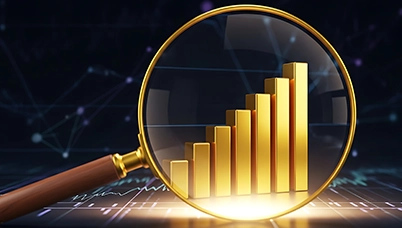Understanding the Systematic Investment Plan (SIP) for Successful Investing
Posted On Sunday, Jan 01, 1950
The Systematic Investment Plan (SIP) is a mechanism for any investor to put money to work in the stock markets - irrespective of the condition of the markets.
The success of any SIP is based on the following assumptions:
That the investor has a truly long term investment time horizon. "Long term", in my opinion, should be defined as investment time horizon of at least two "market cycles". A market cycle is an up-down-up movement. For example, when the BSE-30 Index moved from the "low" levels of 9,000 in June 2006 to a peak level of 21,000 by January 2008 and then moved to the lower level of 15,000 today that is one market cycle. A market cycle may take anywhere from 2 years to 5 years. Therefore, two market cycles take anywhere from 5 to 10 years to complete. If you are not willing to invest for a period of 5 to 10 years, stay away from the stock markets. A game of teen pati may be a better way to pass your time. And gamble your hard-earned money. With Diwali round the corner, there will be no shortage of players.
When you have passed the test and confirmed that you are a long term investor, the next step is to make sure that the Fund you are investing in has also passed that test. There are many mutual funds out there who act as a "CIS" - not the "collective investment scheme" that SEBI envisaged but a "collective intuition scheme". The biggest driver to their decisions on which stocks to own and for how long seems to be "market may kya ho raha hai". They may as well join the short-term investors at the teen pati table. One way of checking whether the fund you wish to invest in is a "fund" or a "gambler" is to study what is called the "portfolio turnover". This is the total sale trades done by the fund in any one year compared to the size of the Fund, expressed as a percentage. So for example, if the Quantum Long Term Equity Fund ( QLTEF ) has total assets of Rs 40 crore.
And, if in the past 12 months, the total sales in the portfolio by QLTEF are Rs 10 crore, then the portfolio turnover is 10 divided by 40 = 25%. What this means is that in any year, you can expect the Fund to sell 25% of the portfolio that it owns. By this logic, it would take 4 years (100% divided by 25%) for QLTEF to change the entire portfolio. If a fund, like QLTEF, claims that it is a long term fund, then a 4-year holding period sort of matches with the definition of long term investment noted in point 1 above.
I don't have any concrete evidence, but I will be surprised if there are many funds with a "long term investment" objective in their very holy-sounding Offer Documents that have portfolio turnovers which match that claim. Not every fund declares its portfolio turnover. But there is no harm in you asking your distributor or the fund directly to declare that number and their method they follow to calculate the same.. If you are buying gold (which you should) it would be nice to know that what you are buying is, indeed, gold. And that 10 grammes you are paying for is actually 10 grams and not 9.5 grams of gold and the balance in cash. The money in the mutual fund is, after all, your hard-earned money and you have a right to know how it is being treated.
So, any investment in any SIP should be based on these two crucial factors: the recognition that you are in the fund for 5 to 10 years AND that the mutual fund you have chosen has a portfolio turnover that matches your long term objective.
But even if you get all this right, there is still the danger that your financial advisor or the mutual fund distributor will convert your Systematic and well thought out Investment Plan into a dangerous game of "market timing". Alas, the behaviour of investors in the recent market meltdown suggests just that - you are victims of a Systematic Destruction Plan.
The victim's body.
In a perfect world, the SIP investor would be getting the fund they wanted - and the fund manager would be getting the time commitment of the SIP investor.
This would allow the fund manager to focus on picking stocks for the long term.
But the perfect world does not exist for most investors.
Data culled from statistics provided by the Association of Mutual Fund Investors (AMFI) suggests that investors are focused on the short term.
A violation of the first assumption noted above.
When markets were at their peak in January 2008, total monthly investment into mutual funds by all investors (whether SIP or one-off) was Rs 21,247 crore.
By June, 2008 when the markets were down by over - 40%, the gross monthly inflows were Rs. 3,998 crore.
The gross inflows at the lowest point of the market were only 19% of the gross inflows at the peak of the market six month before.
Instead of buying more during the downturn, investors were scared to commit to mutual funds - even though the mutual funds they bought in January were probably 40% cheaper to buy into in June.
| Higher markets, higher inflows - lower markets, lower inflows | |||||||
| Jan-08 | Feb-08 | Mar-08 | Apr-08 | May-08 | Jun-08 | Jul-08 | |
| Equity Schemes - Gross Inflows * | 21,247 | 11,261 | 12,431 | 4,592 | 4,795 | 3,998 | 2,762 |
| Average Sensex levels | 19,325 | 18,663 | 15,838 | 16,291 | 16,945 | 14,997 | 13,716 |
| Equity Schemes - Redemptions * | 7,569 | 3,729 | 5,675 | 4,062 | 3,092 | 2,648 | 2,500 |
| Equity Schemes - Redemptions as a %age of Gross Inflows | 36% | 33% | 46% | 88% | 64% | 66% | 91% |
Looking at the overall data, it suggests that investors were investing the highest amount of money when stock markets were at their peak and then scaling back on new investments when stock markets declined.
This is not the way to make money in the long term.
This is the action of a "market timer", a gambler, not an investor.
Holmes, I smell a rat.
Or a dead body of a suckered investor.
A second wound?
And look here, Holmes, right near the bullet hole on the head is what looks like a knife wound to the heart.
The redemptions (which show the money moving out of the mutual funds) clocked in at Rs. 7,569 crore in January 2008 and then declined to Rs. 2,648 crore by June - this was only 35% of the peak redemption levels of January, 2008.
While it was good that investors were redeeming less in absolute rupee terms when the market was low, their higher percentage level of redemptions is suspicious.
The evil twist of the knife: the total redemptions out of mutual funds as a percentage of the total gross inflows into mutual 76 funds were 36% in January 2008. But this has risen sharply in April (88%), May (%), and June (66%). Investors were selling out of mutual funds when the markets are at these low levels.
Could there have been a second killer?
Or was it just one killer who wanted to ensure that the victim was as dead as dead can be?
The selling machine.
Investors have been buying at peak levels in January 2008: that was wrong advice. That was their first death. Or murder.
Investors are now taking out money from mutual funds at a faster rate than they are putting money into mutual funds.
In case the bullet through the head has not killed you, this will.
Buying high and selling low is the surest way to financial loss.
This is the Systematic Destruction Plan.
This is the secret weapon of the mutual fund industry - an industry that is dominated by an army of distributors and marketing machines.
The asset managers are asset gatherers.
Their AMC license granted by SEBI reads Asset Management Company.
It hangs on the wall of the offices of every AMC.
Quantum has it, too.
But many have re-defined their license to read: Asset Gathering Company.
An AGC.
The Quantum license still says, thankfully, that we are an Asset Management Company
When the markets are "hot" the vast army of distributors that work with these AGC folks will tell you to buy more funds - and buy even more.
They are asset gatherers: they act like a suction pump and take out all that loose money hanging around in your pockets.
Their recommendations to you, the gullible investors, are certified as accurate because the market is rising.
You look like a fool for not heeding their advice.
"I told you so" they say each time the market runs up and you have missed out on investing. You are holding on tight to your hard-earned savings.
Finally, you give in.
You succumb to greed.
Now you are a statistic in that peak inflow for January.
When the markets are declining, you panic.
They distributors will not tell you to add more money. For all their brashness of their advice, they cannot look you in the eye and talk to you.
Because their past recommendations to you at the market peak were wrong.
So they will tell you another story: there is a better mutual fund, sell the one you have and put your money in this better mutual fund.
So collectively investors sell Rs 2,648 crore of mutual funds in June 2008 and buy Rs 3,998 crore of the "better" mutual funds.
Congratulations.
If you are not wiling to put more new money into mutual funds, the distribution system still needs to make its money.
If they cannot get a commission from making you put new money to buy a new fund, they can still get a commission from making you sell old money and buy a new fund!
So they tell you to sell something you already have and "redeploy" it into something you do not have.
Each time there is such a trade, someone is guaranteed to make money.
Sorry, dear investor, that "someone" is not you.
The distributor gets a commission.
Guaranteed.
That, in itself, is not a bad thing.
A doctor collects his fees whether he cures you or not.
A lawyer collects his fees whether you win your case or lose your case.
A fund manager collects his fees whether the investor makes money or not.
A distributor must collect a fee whether the investor makes money or not.
There is no harm in earning a fee for doing work.
We live in an economic world where any service must have a fee attached to it.
I have no problems with collecting an economic payment for any service.
As long as the service is an honest and fair service.
But the data in the table above indicates that much of the advice being generated may not be based on what is good for you, the investor.
The advice is likely to be based on what is good for the distribution channels.
Check your pulse.
Produce", say the team leaders at the marketing and distribution channels, "these are your targets. You eat what you kill."
Guess who just got killed?
Stand in the mirror and see that bullet hole in your forehead.
Look down and you will see the knife in your heart.
You are dead, dear investor, just in case you did not know it.
And when will you be re-born?
Free and independent from the shackles and chains of a distribution system that has enslaved you into poverty?
Here, look at the independence we offer you.
A low-cost, sensible way to invest your money in shares (Quantum Long Term Equity Fund or Quantum Index Fund); gold (Quantum Gold Fund); or a low-risk product that gives you tax efficient income(Quantum Liquid Fund).
And we also make you money - in a sensible way.
Assessing and understanding our risks with a disciplined research and investment process.
Table 2: A promise delivered: steady returns, no gambling
| Quantum Long Term Equity Fund - Performance Data | |||||||
| Returns (%) | 1 Week Ended | 1 Month Ended | 3 Month Ended | 6 Month Ended | 1 Year Ended | 2 Year Ended | |
| Returns upto 1 year are absolute and over 1 year are annualised. | As on August 13, 2008 | ||||||
Quantum Long Term Equity Fund | 1.21 | 12.13 | -5.57 | -6.82 | 1.52 | 14.17 | |
Category Average (Equity Diversified) | 0.69 | 9.57 | -10.19 | -13.19 | -4.31 | 14.52 | |
Quantum Long Term Equity Fund Ranking | 48/209 | 28/209 | 12/206 | 21/193 | 42/180 | 83/157 | |
(Source - www.valueresearchonline.com) | Returns for Growth Plan | ||||||
Quantum Long Term Equity Fund was launched in March 2006
Now, the key to your freedom is one click away. An offer to be part of a Systematic Independence Plan - with a mutual fund house that was the 29th fund house in the country, but the 1st to stay away from the commission led distribution system that may not always be working in your favour.
Related Posts
-

Gold Monthly for December 2025
Posted On Thursday, Dec 04, 2025
After a series of events and a strong rally in October 2025, gold demonstrated a mixed performance in November 2025, moving back and forth within a defined range.
Read More -

Equity Monthly for December 2025
Posted On Wednesday, Dec 03, 2025
Markets continued the rising trend in October with Sensex gaining 2.2%.
Read More -

Debt Monthly for December 2025
Posted On Tuesday, Dec 02, 2025
As we approach the end of the calendar year, we find ourselves at a pivotal moment, with the market split on the likelihood of an upcoming rate cut.
Read More




